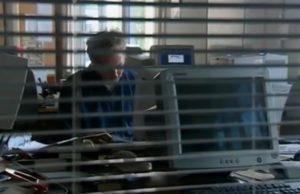- ‘Lies, damned lies etc…’ - 13th February 2026
- Missing in action - 12th February 2026
- Travel news again - 11th February 2026
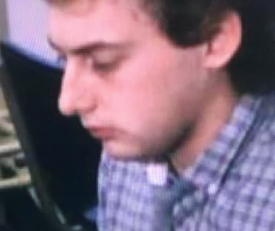
As reviews of a new book about the Pandemic reveal how history teaches important lessons, but questions then arise about when it’s ‘too soon’ to look at events, here our Editor Phil Parry examines why securing interviews has always been difficult, although it is slightly easier when they concern incidents in the distant past.
Earlier he described how he was assisted in breaking into the South Wales Echo office car when he was a cub reporter, recalled his early career as a journalist, the importance of experience in the job, and made clear that the ‘calls’ to emergency services as well as court cases are central to any media operation.
 He has also explored how poorly paid most journalism is when trainee reporters had to live in squalid flats, the vital role of expenses, and about one of his most important stories on the now-scrapped 53 year-old BBC Wales TV Current Affairs series, Week In Week Out (WIWO), which won an award even after it was axed, long after his careerreally took off.
He has also explored how poorly paid most journalism is when trainee reporters had to live in squalid flats, the vital role of expenses, and about one of his most important stories on the now-scrapped 53 year-old BBC Wales TV Current Affairs series, Week In Week Out (WIWO), which won an award even after it was axed, long after his careerreally took off.
Phil has explained too how crucial it is actually to speak to people, the virtue of speed as well as accuracy, why knowledge of ‘history’ is vital, how certain material was removed from TV Current Affairs programmes when secret cameras had to be used, and some of those he has interviewed.
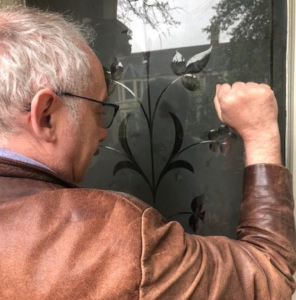
He has disclosed as well why investigative journalism is needed now more than ever although others have different opinions, how the coronavirus (Covid-19) lockdown played havoc with media schedules, and the importance of the hugely lower average age of some political leaders compared with when he started reporting.
What goes on behind the scenes for a journalist is often overlooked.
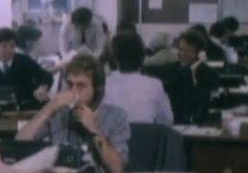
When I am pursuing a story, the time spent in securing key interviews is often equal to the journalism.
In this you can be offered an intriguing insight into human psychology, because people are happy to provide details of a dubious event, less keen to put their name to them for legal purposes, and almost never to give an on-the-record interview about what happened.
When I was in newspapers you would use every (legal and invariably ethical) trick in the book to persuade people to give their names.

One that I particularly remember was a bit underhand, as you gave a false impression the interviewee had given his or her name before, because they would freeze if you bluntly came out with: “What is your name?”.
So you would say: “What was your name, AGAIN?”
I remember being caught out several times using this method of persuasion, when people would say: “I didn’t give it”!

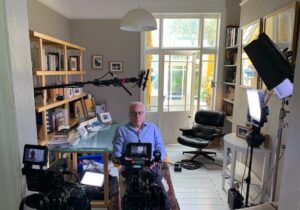
In television it was even more difficult, because interviewees were often reluctant to give a long on-camera interview describing a disturbing event.
You could sometimes disguise the person’s identity, with the light behind him or her, and by adjusting the pitch of the voice in the edit.
In fact I did exactly that on BBC TV Panorama for a central interview with the mother of a boy who had been sexually abused by a Roman Catholic (RC) priest in Wales.

This technique, however, could only be used sparingly as the viewer would soon grow tired of watching such a scene, and quickly turn over.
But the most difficult by far was not a grieving parent, or victim of a fraudster – it came when I presented a BBC Wales Week In, Week Out (WIW0) Current Affairs programme about rats, and interviewed a woman who had found one of these animals in her kitchen, because she thought that if she talked about it on camera, it would show to everyone that her house was dirty.
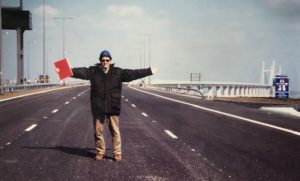
I therefore played my final card, and said she could have the power of veto over whether it would be used or not, which is an extremely high risk strategy because, of course, if she had said ‘I don’t want it to go out’, I would be forced to abide by her instructions and lose it from the programme as I had given my word.
She simply refused to do it, so I said: “Look, I tell you what, do the interview and see it back afterwards through the camera. If you don’t like it, we won’t use it”.
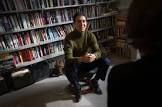
She did the interview, saw it back afterwards and was, thankfully, quite happy – so it went out.
All of this has come to the forefront of my mind reading reviews about a new book on the history of the Pandemic, called 2020 by Eric Klinenberg.
As it is so recent securing the interviews has been quite tricky. The further back in time you go, though, the easier it then becomes, but knowing WHEN is the right time is problematic.

One of those reviews, in The Economist declared: “When Thomas Carlyle, a Scottish essayist, published a book analysing the French revolution, a reviewer tutted that it was too soon. (It was half a century after it.) A certain unease about haste remains today. It is not clear when the mundane “present” (to be dealt with by journalists) becomes the monumental “past” (to be dealt with by historians). Is it after a month? A year? A decade? In short: how soon is too soon to write history?”.
I have often thought it may be slightly easier for documentary-makers or Current Affairs producers to get people to go on camera to explain historical events (and especially when it is a long way back, because potential interviewees can’t complain or sue if they are dead!), as they are not directly affected, and could have retired, so will not face the sack for speaking out.
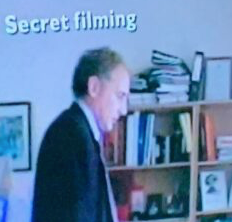
Historians might be prickly people to interview, but surely they can’t be as difficult as the woman who found a rat in her kitchen..!
The memories of Phil’s astonishing decades-long award-winning career in journalism (when securing key interviews was all-important) as he was gripped by the rare disabling condition Hereditary Spastic Paraplegia (HSP), have been released in a major book ‘A GOOD STORY’. Order it now!

Regrettably publication of another book, however, was refused, because it was to have included names.
‘2020’ by Eric Klineberg is published by Bodley Head, and costs £25.
Tomorrow – as worrying details emerge of how the Ukrainian war has spurred a big growth in computer-generated fake news which is confronting Government agencies in Western countries, so Phil will look at the importance of identifying factual information in publications, and how we too on The Eye have been targeted.








